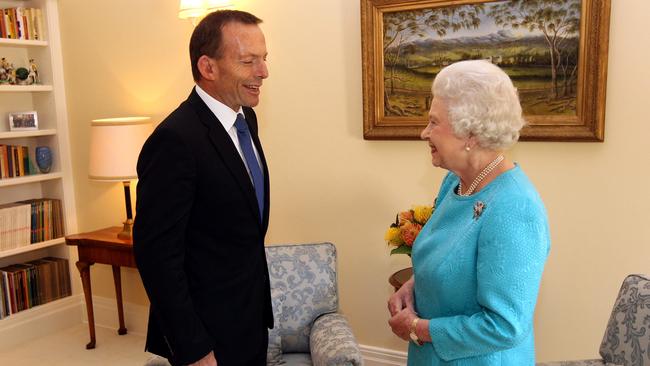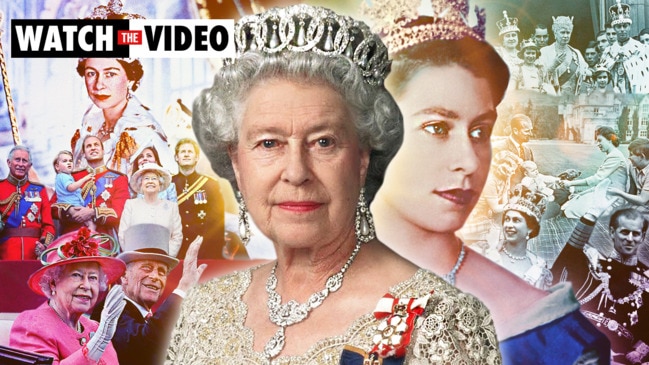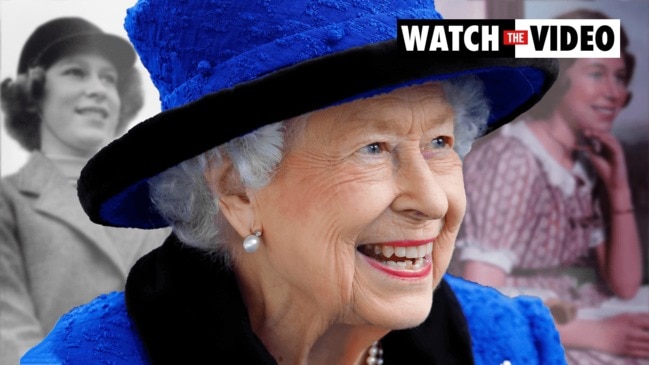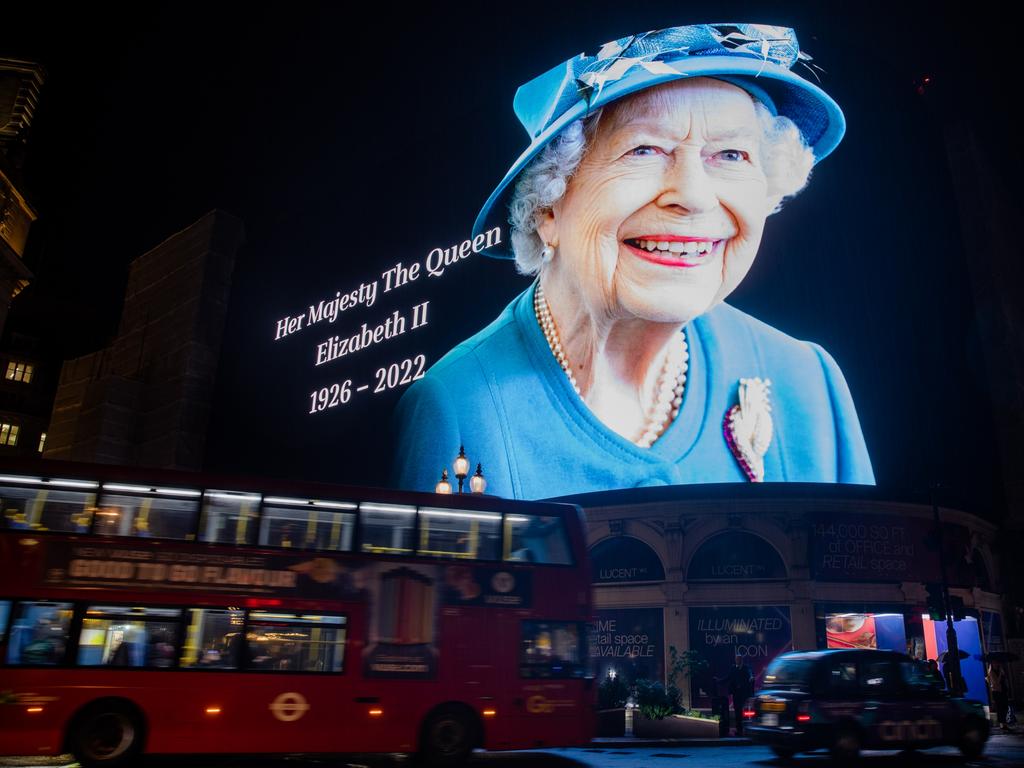Queen Elizabeth: Probably not a single death in human history will be as widely felt, says Tony Abbott


Thanks to television, that was just coming into its own at the start of her reign, there’d hardly be anyone, anywhere unfamiliar with her. Unlike mere celebrities, she’s been consequential; and unlike elected heads of state, as a monarch for life, she’s been centre-stage for more than seven decades.
Almost no one alive today can remember a world without the Queen. That’s why her passing will leave billions of people feeling numb, certainly all those in the English-speaking countries and the wider Commonwealth for whom the monarchy matters most.
Quite apart from the week of official mourning in Britain, all the flags at half mast and the speeches of condolence here and throughout the Commonwealth, and all the formal tributes from around the globe for this remarkable woman, countless numbers who have never met her but have felt her presence will nurse an aching sense of loss.
This feeling of personal loss will owe much to her own character; but also much to the office that she has held throughout nearly all our lives. She has been the very epitome of the dutiful public servant; even since declaring, in an address to mark her 21st birthday, that “my whole life, be it long or short, will be devoted to your service” and that of the “great imperial family to which we all belong”. Every day since then, and in every way that we are aware of, she has been entirely faithful to that solemn pledge. On occasions great and small; with people famous and anonymous; with and without fanfare, always gracious, unassuming, and uplifting, she has done her duty – and thus become as near to a fixed presence in our lives as anyone can be, who’s not personally with us.
Her very continuity from decade to decade has been a key part of the comfort and the reassurance that she’s provided; but then there’s also her palpable decency and sense of occasion: her remark, for instance, after 9/11 that “grief is the price we pay for love”; her pandemic broadcast that “we’ll meet again”; her establishment of the Elizabeth Cross, the medal now conferred on the next of kin of British military personnel killed in the line of duty; or simply turning up to pay her respects after the London Grenfell Tower disaster. Indeed, she’s had a rare gift for the perfect phrase (such as the lapidary “recollections may vary”).
With many people admiring the Queen but rejecting the monarchy, it’s worth asking the question: could we have had such an extraordinary public life without the monarchy to make it possible?

Without a monarchy, there could never have been a platinum jubilee; other than under a president-for-life, and that would be a dictatorship. Only a monarchy could have produced an Elizabeth. First, because a head of state that’s elected or appointed wouldn’t have had the Queen’s longevity as a public figure; second, because anyone chosen through a political process, almost unavoidably, would need a different set of character traits, almost certainly including the self-promotion instinct that the Queen has entirely lacked; and third, no one else could readily be expected to have the House of Windsor “firm’s” ingrained inter-generational family commitment to selfless duty and service, that in the Queen’s case, clearly extended to Prince Philip too.
That’s not to say that every monarch has approached the Queen in being entirely beyond reproach.
Or that every member of the royal family is equally exemplary. It seems that Edward VIII put self-fulfilment ahead of duty. Pretty obviously, Prince Andrew has let indulgence trump judgment. No system is perfect.
Still, the advantage of a hereditary monarchy over a political presidency is that it provides a symbol of unity that’s beyond partisan strife. Its disadvantage is that the head of state is decided by an “accident of birth”. For all that it goes against the modern grain, perhaps generations of breeding plus a lifetime of training is more likely than politics to provide at the apex of our system someone that most of us can respect. Over the past century, in George V, George VI and Elizabeth II, not only have history and heredity given us individuals of unimpeachable integrity and sterling character; but also a woman in our position of greatest public honour. In practice, could any conceivable republic have done so well?
My personal contact with the Queen was but half an hour with her as opposition leader in 2011, on her 16th and final visit to Australia. She clearly had a talent for talking well about complex and contentious events (such as the riots that had just gripped many British cities) without seeming opinionated. She had a gift for putting people at ease and making them feel special. She had a presence that somehow combined charm and authority.

In 2014, Prince William and Kate visited a hospice for dying children in my-then electorate. There must have been at least two hundred people having a spontaneous community barbecue in the street outside. Then, lining the streets, up to five deep down the eastern hill of Manly to the beach where the royal couple were to meet young life-savers, was a crowd the police estimated at over 20,000 people. As a veteran of the 1990s republican debate here in Australia, and the condescension, scorn and vitriol then vented against the royals, I had never thought to see with my own eyes such a demonstration of the magic of the monarchy – and have rarely been so moved.
I doubt that the new reign will turn out to be quite the constitutional watershed for Australia that monarchists fear and republicans hope. Charles has undoubtedly been an activist heir. Yet it’s hard to fault the good intentions (if not always the wisdom) that underlies his environmental concerns.
Out of respect for the Queen, I’m sure Australians will want to give him a fair go; and likewise, as a monarch, I’m sure he will turn out to be very much his mother’s son.
In any event, the Crown is always represented in this country by a governor-general or state
governor, invariably someone of great standing. I’m not sure Australians will be in any great hurry to replace a governor-general appointed like a judge with a president chosen like a politician. Our history has made us a “crowned republic” with strengths that would be hard to replicate in anything new.
With such as the Queen, we’re not diminished by her death but strengthened by her life. On her passing, I will give thanks to God: not just for this inspirational woman; but for a country blessed with such a system of government.
Tony Abbott was the 28th Prime Minister of Australia, 2013-2015 and the executive director of Australians for Constitutional Monarchy during the republic referendum in 1999.







Probably not a single death in human history will be as widely felt as that of Queen Elizabeth II.